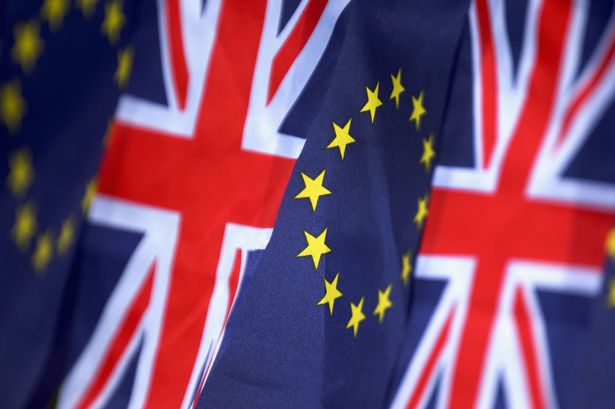|
The Breadcrumbs widget will appear here on the published site.
Hope and Try to be Human: How to be an American in London These DaysOver the last week I’ve been writing two pieces about hatred and hope in the wake of the Orlando shooting and the murder of MP Jo Cox. Neither of those seem helpful today, in the light of yet another dark twist in the political fabric of western societies. As an American resident (but not naturalised citizen) of the UK, the first few hours of today (Friday the 24th of June) has been thoroughly surreal. The last two days in London have been heavy and grey with thunderstorms; widespread flooding has taken place. This morning, the skies are blue and sunny. The shouts of children allowed to play outside at the primary school next door are loud and, it would seem, largely oblivious to the state of European (or World) politics. This is comforting. Overnight, the votes of the UK’s referendum on whether or not to remain part of the European Union were counted. The ‘Leave’ vote won at 52% to ‘Remain’s’ 48%. Those voting Leave were overwhelmingly older, white, rural or suburban, middle-to-lower end of the socioeconomic spectrum. (UK writers refer to this as ‘working class’, which to my American ears, allergic to class designations, always sounds like something of an epithet.) Younger people, those living in urban areas, those with connections or investments, those feeling less disenfranchised by the current political systems at home and abroad—those are the people who (mostly) voted Remain. Overnight, as predicted, the British Pound fell to its lowest value since 1985. The most common word on the radio this morning has been ‘instability’. Overnight, the Prime Minister, David Cameron, decided to resign. Overnight, far-right cohorts in a number of other European countries began their calls for their own referendums of leaving the EU. Overnight—it is difficult to feel any other way—hatred (this time, the xenophobic kind) had another tiny victory over hope. __ Last week, the UK awoke to something else terrible overnight—the Orlando shootings. In their wake, there have been many, many hearts broken here in the UK. Not only are many people feeling wrenched because of the needless loss of life—carried out, it would seem, as a consequence of too-free gun ownership laws—but because of the clearly homophobic nature of this attack, and of the unwillingness of some to admit this homophobia. It is Pride weekend in London, with the great parade through the centre of town tomorrow and spinoff events all over the city and country. Dancing and marching in solidarity never seemed so important. __ The EU, as it stands, is not perfect. It is not a hotbed of solidarity, dancing, support for those on whom life takes a hard toll. But leaving it now, when Europe faces the worst ‘migrant crisis’ in recorded history, is a sign that the majority of the UK wants to take the lazy way out. It is isolationism fuelled by fear, apathy and disenfranchisement. Of course, ‘the majority’ in this case is 52%—a slim majority, indeed. And not all of those who voted ‘leave’ did so out of a desire for isolationism. Some genuinely felt that it would be better for Britain—even Britain’s most needy—to leave what they saw as a shambles in Brussels behind. But for many others, this vote has been decades in the making. Ironically, for many rural or post-industrial voters, the same politician who tirelessly worked to demolish the political power of their communities was the same one who was massively in favour of the EU in the 1970s—that is, Margaret Thatcher. Talk about a confusing legacy of political abuse and sell-out. It is precisely because of this disenfranchisement that vilifying those who voted to leave will not do any good. It will only drive deeper the anger, resentment, and the toxic cocktail of shame and pride. __ The word ‘hatred’, then—is it vilification? Am I falling into the same trap as those with whom I politically disagree? Perhaps so. My trite dichotomy of hatred and hope is, as most dichotomies are, a false one. The fact is, however, that I am grieving. Grieving the needless loss of life in Orlando, a hatred-fuelled crime in a country facing its own political upheaval. Grieving the shocking murder of an MP. Grieving the death of an imperfect, but potentially forward-looking, human-honouring union between the UK and the EU. How do I explain these deaths, both literal and figurative, and the uncertainties they have wrought—uncertainties which, as always, will be shouldered by those least able to shoulder them? I hope, and try to be human. __ Yesterday, in an attempt to avoid all the press about the referendum, I caught up on the last few episodes of the show Penny Dreadful. A thoroughly wonderful, indulgent gothic horror story, its series finale contained moments of truth and reckoning of many kinds. Perhaps the most poignant was when one character, readying himself to deprive another character of her humanity whilst thinking it was best for her, changed his mind. ‘It is too easy being monsters,’ his line went. ‘Let us try instead to be human.’ In the aftermath of Orlando, of the murder of Jo Cox, of the EU referendum, perhaps the attempt to be human with each other, even those we could easily make into monsters (thereby making monsters of ourselves) is the best gesture of hope that we have. #Real #Politics #EURefResults #JoCox #Orlando #Hope #PennyDreadful Visit our shop and subscribe. Sponsor us. Submit and become a contributor. Like us on Facebook and follow us on Twitter.
CommentsComments are closed.
|
|










